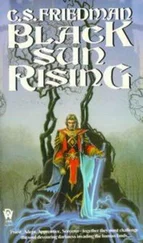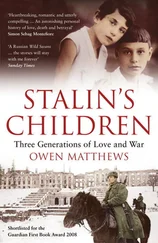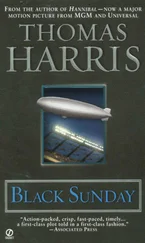Kuznetsov’s mouth contracted into a thin line. His nostrils flared as though sniffing for a hint of mockery. Vasin sensed that he had bumped into a hard edge in his hitherto amiable companion. Kuznetsov waited a long moment before replying, his eyes traveling over Vasin’s face.
“We’ll find out soon enough.”
“Find out, how?”
“They’re going to test it. And before you ask, by test I mean detonate the thing.”
“Here?”
“Not here, numbnuts.” The tension in Kuznetsov’s mouth eased at the obtuseness of Vasin’s question. “They test the devices up in the Arctic. Don’t they tell you anything in Moscow?”
“Well, that’s a relief.”
“For some.”
“Meaning?”
“Meaning—let’s hope so. The farther away that thing is from me, the better.”
Kuznetsov fumbled another cigarette into his mouth and testily struck a match.
“And the deceased…?”
“Fyodor Petrov was a key member of the RDS-220 team.”
“Ah.”
“Yes. Ah . An assistant to Professor Adamov, no less.”
“The Director?”
“The Director. The Tsar and God of Arzamas. Father of RDS-220.”
“So what do you think happened to Petrov, exactly?”
“You read the file.”
“I want to hear your version.”
Kuznetsov exhaled smoke through his nostrils like a cartoon demon.
“I don’t have a version, Vasin. The boss, Major General Zaitsev, is going to lay it out for you chapter and verse. A words-of-one-syllable man, our Zaitsev. Tomorrow, 0900 at the kontora .”
Kontora . Literally, the office, and one of the more respectful slang words for the KGB. Vasin had heard plenty of others.
“Very good. And what have you been asked to lay out for me, Kuznetsov?”
“Oh, you know. Bed linen. Towels.”
Kuznetsov cracked a smile, holding Vasin’s eye.
“You’re funny.”
“So they keep telling me.”
“Seriously, though.”
“Seriously? That’s a good word. Shit here is serious, Vasin. Which is why I find myself thinking that it may not be my most natural habitat. What I need to lay out for you is this: We do not wish to see Fyodor Petrov’s colleagues unduly distracted.”
“Because nothing interferes with the project. I understand. Thanks for filling me in.”
“Pleasure. That’s what I’m for. To fill you in.”
“And Petrov’s body?”
“Spot the ex-detective. Central Clinical Hospital, I assume. Ask the General tomorrow.”
“Address of the deceased’s apartment?”
“No idea. Zaitsev’s in charge.”
Probably a lie. But Vasin smiled nonetheless. The address was somewhere in the summary report he had brought from Moscow.
“I’m keeping you up, Kuznetsov. It must be getting late.”
“For Moscow, maybe. Not for the busy bees of Arzamas. We’re going out.”
“Out?”
“To a lecture at the All-Union Scientific Research Institute of Experimental Physics. Also known as the Citadel.”
Vasin glanced at his watch.
“A lecture? At eleven at night?”
“Science never sleeps, Comrade. Professor Adamov has something to tell the assembled brains of Arzamas. Which probably does not include us. Sorry. I mean me, at least. But we’re going anyway. Come, or we’ll be late.”
II
It took them less than five minutes to drive through the empty streets of Arzamas and swing into the broad expanse of Kurchatov Square. A freezing mist was rising. The main building of the Citadel loomed like an ocean liner in the thickening fog, its illuminated windows piercing the night. A colonnade of bare concrete pillars supported a jutting roof. It reminded Vasin of a mainline railway terminus.
A row of turnstiles divided the high-ceilinged lobby in half, a more solid version of the entrance of a Moscow metro station. Kuznetsov flashed his red KGB identity card to the sergeant on duty, and Vasin followed suit.
The lecture theater was crowded to overflowing. Whispering apologies, Kuznetsov pushed his way into the darkness. A couple of young uniformed men shifted up to allow him and Vasin to sit on the carpeted stair. A single table lamp on the raised stage provided the only light, illuminating a lectern. Professor Adamov’s gaunt face, lit from below, looked to Vasin like a speaking skull. He wore an old-fashioned black Party member’s tunic, buttoned to the collar, with three Hero of the Soviet Union stars pinned over his heart.
“…First and foremost, of course, we must be careful. I promised the General Secretary that we would not…” Adamov paused, wheezing a little, as he worked up to the punch line. “That we would not crack the earth like an egg!”
The Professor looked up from his notes and squinted through small glasses at the attentive young faces arranged around him like disciples. He stretched his thin mouth into something like a smile, authorizing a ripple of awkward laughter to spread around the hundred men in the overheated hall.
The Professor’s smile widened, even as his mind seemed to turn inward. Silence deepened. It seemed to Vasin as though Adamov was suddenly too busy thinking to acknowledge the outside world. Every other function of his body except breathing appeared suspended while the brain raced at full speed. Vasin glanced left and right, but Adamov’s pause seemed to excite no surprise in his audience. Was the quiet filled with racing calculations? Or was Adamov’s silence within himself—just silence?
And then, just as abruptly as it had left, animation returned to Adamov’s eyes. He peered into the hall at his students and colleagues and examined them, one by one. The faces were eager, open, the eyes shining with intelligence. A few tried to hold his stare, at least for a moment. Some looked brave, some hopeful, most fearful. And then they looked down.
“Every one of you has been chosen.” Adamov’s voice was so quiet as to be almost inaudible, as though he were speaking half to himself. “Chosen for some aspect of your minds that the Motherland has found useful. Or interesting. Or just uselessly unusual. In physics one always has to keep the useless results in mind.”
Another dry joke? If so, this time nobody laughed. Adamov stepped toward a large box that stood at the front of the stage and flicked a switch, illuminating a white square of light on a large screen. An overhead projector, the first Vasin had ever seen.
“Every day newcomers arrive to assist in the final assembly of RDS-220. To them, welcome. And I have an announcement to make to all of you. After receiving the reports of all the laboratory heads, I have concluded that all is in place to finally set a date for the test that we have all been anticipating so eagerly. The date is October thirtieth. We have reached the final stage of preparation. Nine days from now, the world will see the might, the glory, and the genius of peace-loving Soviet science.”
A low murmur ran through the hall. Adamov stabbed the whispering down with an icy glance.
“As I was saying. For the newcomers, and for all of us, a reminder of our fundamental questions. This device has some… new features. The consequences of this test will be hard to predict.”
He began writing formulas with a scarlet marker on a transparent sheet on the projector’s screen, tapping the point on the glass for emphasis. “It. Is. Our. Patriotic. Task. To. Calculate. Them… There are great unknowns we have yet to grasp. Consider the work of Dr. Smirnov on fusing hydrogen nuclei with their heavy brothers tritium and deuterium. The behavior of superheated plasma, gases hotter than the heart of the sun, during the milliseconds after core detonation. The consequences of scaling up the tried-and-tested thermonuclear reactions to a hitherto unknown scale. What happens when we double it? Multiply it by ten? A thousand? At this kind of scale, gentlemen, we encounter new parameters: the solidity of the earth’s crust. The behavior of the atmosphere in different thermoclines. The point at which we may ignite a chain reaction in atmospheric water. And this is the point that we address today. But first, for the benefit of the newcomers, we remind ourselves of some ancient history. Our old friend RDS-100. Back in 1951.”
Читать дальше












